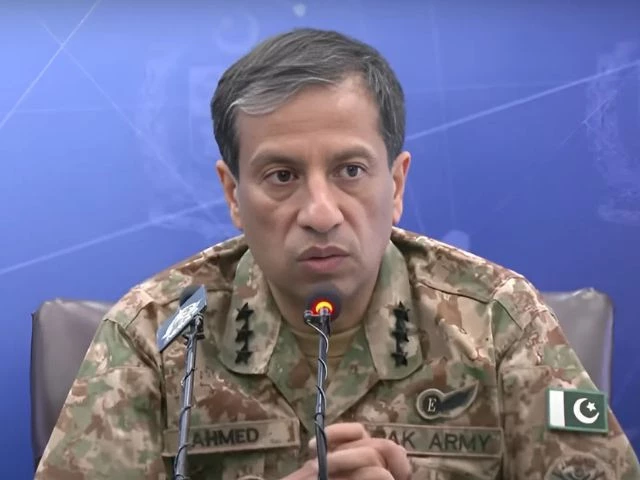ISLAMABAD ( WNAM REPORT): Failure to enforce the National Action Plan agreed upon by all political parties is causing a surge in terrorism, said ISPR Director General Lt Gen Ahmed Sharif Chaudhry, addressing a press conference in Peshawar on the security situation in Khyber-Pakhtunkhwa on Friday.
The K-P has been on the frontlines of Pakistan’s counterterrorism campaign for the past two decades, said DG ISPR. When the frequency of terrorist incidents increased again in 2021, security forces gave a “firm and effective” responsive, he said. More Khwarij have been killed in the recent past than in the last nine years combined, added Lt Gen Chaudhry.
Fitna al-Khwarij is a term the state coined for terrorists affiliated with proscribed Tehreek-e-Taliban Pakistan (TTP) after the war with India in May this year.
He began the press conference, which was streamed live on YouTube, by paying tribute to the “brave and resilient people” of K-P, and acknowledged their sacrifices alongside the armed forces in the fight against terrorism.
DG ISPR blamed weak governance and the neglect of the National Action Plan (NAP) for the surge in terrorism, particularly in Khyber-Pakhtunkhwa (K-P), where “around 70 per cent of the country’s terrorist acts take place.” He noted Pakistan, and K-P in particular, has faced terrorism for the past two decades.
He revisited the revised 2021 NAP points, highlighting intolerance for militancy, action against terrorism in media and cyberspace, curbing terror financing, follow-up of Counter Terrorism (CT) cases in courts, capacity building for CTDs, regulation of seminaries, and reforms in the criminal justice system.
Formulated after the Army Public School attack with consensus from all political parties, he revisited its 14 points. ‘All parties agreed on this—you agreed on this. But is it being implemented?’ he asked.
He recalled that in 2021, the then-government “removed certain provisions from the plan—despite progress in those areas—and introduced a revised version.” All parties recommitted to enforcing the plan, “yet the implementation remains absent.”
Without naming any party, he attributed the worsening security situation in K-P to internal lapses. “The provincial government has fallen into the terror-crime nexus,” he said, referring to illegal activities such as narcotics trade and non-custom-paid vehicles that “allowed lawlessness to flourish and terrorism to breed.”
“When the suggestion was made to seal the Pak-Afghan border, there were people in power who opposed it—only to keep their criminal activities going,” he added. “Terrorism exists today because we are not following the National Action Plan.”
Terrorism in K-P
DG ISPR said terrorism’s roots lay not just across the border but within Pakistan’s governance failures. “Why is 70 per cent of all terrorist activity in K-P and Balochistan, and not in the other two provinces? The answer is good governance,” he said.
He accused the K-P government of politicising counterterrorism and weakening the state’s resolve by seeking negotiations with militants. “Calling for talks with non-state actors is a failure of governance,” he remarked.
He shared operational data during the confernece that in 2024, 14,535 intelligence-based operations (IBOs) in K-P killed 769 terrorists—including 58 Afghan nationals—while 272 army and FC personnel, 140 policemen, and 165 civilians were martyred.


